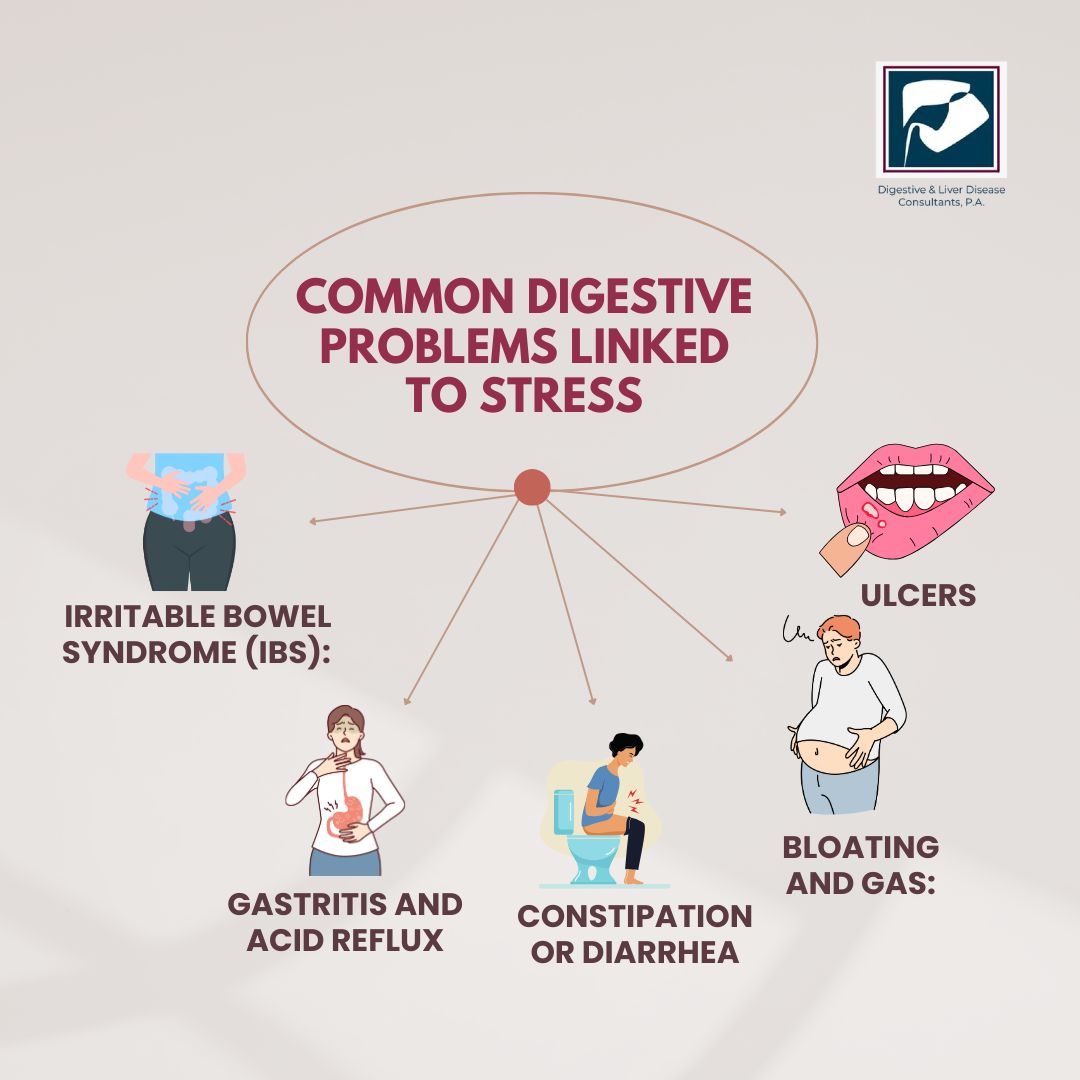Stress is a part of life, and almost everyone has experienced it at some point. Whether it's due to work pressures, personal struggles, or everyday challenges, stress can affect us in many different ways. One area that is often overlooked when it comes to stress is its impact on our digestive health. If you’ve ever felt a "knot" in your stomach or had a stomach ache during stressful times, you’ve experienced firsthand how stress can affect your digestive system. But what is the connection, and how can we protect our digestive health during stressful times?
How Stress Affects the Digestive System
The body’s response to stress is complex. When you're stressed, your body activates its "fight-or-flight" response, releasing hormones like adrenaline and cortisol. These hormones prepare your body to deal with immediate threats, but they also cause changes in the digestive system.
Changes in Digestion: Stress can slow down or speed up your digestive process. This can lead to symptoms like bloating, indigestion, constipation, or diarrhea. When you're stressed, your body prioritizes immediate survival over digestion, leading to these digestive disruptions.
Increased Acid Production: Stress can increase the production of stomach acid, which may lead to heartburn, acid reflux, or even ulcers. This is because the body is preparing for a perceived threat, and in the process, it can irritate the stomach lining.
Gut Flora Imbalance: The gut is home to trillions of bacteria, and stress can disrupt this delicate balance. When the gut bacteria are out of balance, it can lead to issues like irritable bowel syndrome (IBS), bloating, and gas.
Reduced Blood Flow to the Gut: When you’re under stress, the body directs more blood to the muscles and brain to help you deal with a perceived threat. This reduces the blood flow to your digestive organs, making it harder for your body to properly process food.
Increased Sensitivity in the Gut: Stress can make the digestive system more sensitive, meaning that things like certain foods or even minor changes in your routine can trigger discomfort or pain.
The Vicious Cycle of Stress and Digestion
The connection between stress and digestive health often creates a vicious cycle. For example, if you're experiencing digestive issues like bloating or acid reflux, it can cause more stress. This additional stress can then worsen your digestive problems, and the cycle continues. It's a loop that can be tough to break, especially when you're dealing with ongoing stress.
Common Digestive Problems Linked to Stress
Several digestive issues are commonly linked to stress. These include:
Irritable Bowel Syndrome (IBS): Stress is one of the key triggers for IBS. This chronic condition causes symptoms like abdominal pain, bloating, and changes in bowel movements, such as diarrhea or constipation. Stress doesn’t cause IBS directly, but it can worsen the symptoms.
Gastritis and Acid Reflux: The production of excess stomach acid during stress can lead to acid reflux, also known as gastroesophageal reflux disease (GERD), and gastritis, which is the inflammation of the stomach lining. This can result in heartburn, chest pain, and even nausea.
Constipation or Diarrhea: When you're stressed, your gut can either speed up or slow down. This can result in constipation, as your digestive system becomes sluggish, or diarrhea, as your body processes food too quickly.
Ulcers: Chronic stress may also play a role in the development of ulcers. Increased stomach acid and the irritation it causes can lead to the formation of sores in the stomach lining.
Bloating and Gas: Stress can lead to bloating, gas, and a general feeling of discomfort in your stomach. This is due to changes in digestion and gut bacteria caused by stress.

How to Manage Stress for Better Digestive Health
While stress can certainly impact your digestive system, there are steps you can take to help manage stress and protect your digestive health.
Practice Relaxation Techniques: Deep breathing, meditation, and yoga can help activate the body’s relaxation response, which can counteract the effects of stress on your digestive system. Regular relaxation practices can reduce cortisol levels and improve overall digestion.
Exercise Regularly: Physical activity can help reduce stress and improve digestion. It increases blood flow to the digestive organs and helps regulate bowel movements. Even a short walk every day can make a big difference.
Eat Mindfully: Stress can affect your eating habits, leading you to skip meals or overeat. Eating slowly and mindfully can help ease digestion and prevent symptoms like bloating or indigestion. It’s also important to eat a balanced diet rich in fiber, fruits, and vegetables to keep your digestive system healthy.
Get Enough Sleep: Stress can interfere with your sleep, which in turn can worsen digestive issues. Aim for 7-9 hours of sleep each night to allow your body time to repair and restore itself.
Limit Caffeine and Alcohol: Both caffeine and alcohol can irritate the digestive system, especially when you're stressed. Cutting back on these beverages can help reduce stress-related digestive issues.
If you're feeling overwhelmed by stress or dealing with persistent digestive discomfort, it's time to get help. At DLDC (Digestive & Liver Disease Consultants P.A), our team of specialists is here to support you in managing your digestive health and improving your quality of life.
Conclusion
Stress is a common part of life, but when it affects your digestive health, it’s important to take action. By understanding the connection between stress and digestion, and making small changes in your lifestyle, you can protect your digestive system and reduce the impact of stress. Don't let stress take a toll on your health—take control today for a healthier, happier you.
If you're feeling overwhelmed by stress or dealing with persistent digestive discomfort, it's time to get help. At DLDC (Digestive & Liver Disease Consultants P.A), our team of specialists is here to support you in managing your digestive health and improving your quality of life.






